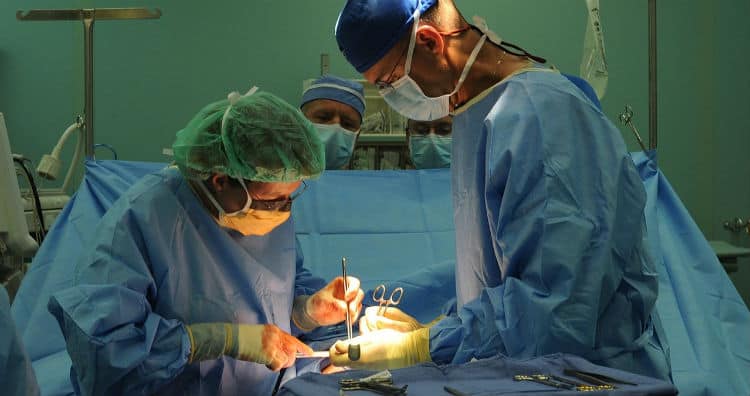Hernia Mesh Complications May Affect Up To 170,000 In UK

An investigation conducted in the United Kingdom has uncovered significant evidence of hernia mesh’s dangers. In a story for the BBC program Victoria Derbyshire, reporters revealed that up to 170,000 patients who were implanted with hernia mesh products throughout the UK may have experienced complications over the past six years.
Up To 30% Of UK Hernia Mesh Patients Suffer Complications
Since 2012, an estimated 570,000 hernia mesh operations have been performed in the United Kingdom, according to the National Health Service (NHS) data. Surgeon experts, the BBC reports, say the complication rate for hernia mesh products lies between 12% and 30%.
Patients Describe Chronic Pain, Thoughts Of Suicide
In documenting the horrific suffering of many patients, Victoria Derbyshire spoke with men and women, some of whom have been left suicidal by severe and chronic pain following their hernia surgeries. One young woman, just 34-years-old, described pain so debilitating that she was forced to walk with a cane.
“It hurt all the time,” she said, “I had a cane because I just felt really unsteady on my feet.” Thankfully, she has been able to afford two corrective procedures, in which large patches of mesh were removed from inside her body. She credits these subsequent operations for improvements in her mobility and pain, but reports that she continues to struggle with the most basic tasks. “I was so active,” she continued, “running around, commuting, kayaking – and now I can’t pick up a sock from the floor.”
The Victoria Derbyshire program also focused on a second patient, David Ellis, who was left almost unable to walk after receiving a hernia mesh implant. “The life I knew is gone,” Ellis said. “I can’t even sleep properly. It’s not something that you’d choose for yourself. I have so many times come close to ending it, because of the pain.”
Hernia Mesh Widely Used Throughout World
According to the BBC, NHS-controlled hospitals have no consistent guidelines on the treatment of hernia patients. The most common procedure, however, involves the use of hernia mesh. After pushing the bulging tissue back inside the body, surgeons affix a sheet of surgical mesh, which in theory is designed to strengthen the muscle walls. In most cases, the mesh is made from polypropylene, a plastic frequently used in industrial manufacturing.
The United Kingdom’s top medical device watchdog, the Medicines and Healthcare Products Regulatory Agency, continues to stand behind the safety of hernia mesh products, despite a substantial public protest over the side effects caused by these medical devices.
MP Fears Another Mesh Scandal
Labour Party Member of Parliament (MP) Owen Smith is worried about hernia mesh. In an interview for Victoria Derbyshire, MP Smith said he had fears that the United Kingdom could “potentially have another scandal on our hands.”
MP Smith leads the All Party Parliamentary Group on Surgical Mesh Implants, a group of parliamentarians who joined forces in the wake of the transvaginal mesh crisis to raise awareness around mesh implants and give voice to the “plight of mesh-injured” patients.
He believes the Medicines and Healthcare Products Regulatory Agency is failing to listen to injured victims. “It reflects the flawed system we have in place,” the MP said. “Neither the regulators or the manufacturers [are required] to follow up on problems.” Much of the blame, MP Smith states, must fall on the corporations responsible for manufacturing hernia mesh products.
What Is US Policy?
According to the U.S. Food & Drug Administration, approximately 1 million hernia repair procedures are performed in the United States every year. An estimated 90% of these repair operations involve the use of surgical hernia mesh.
Applying the 12% to 30% complication rate cited on the Victoria Derbyshire program, between 108,000 and 270,000 American hernia mesh patients could experience complications from their procedure every year.
As in the United Kingdom, the FDA continues to advocate for the use of surgical mesh in the repair of hernias, writing that, “the use of surgical mesh may also improve patient outcomes through decreased operative time and minimized recovery time.”
